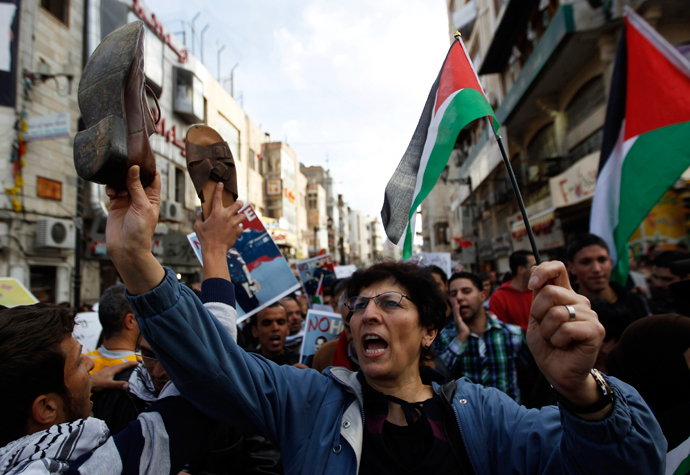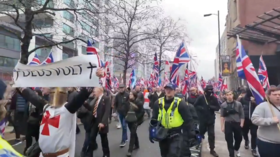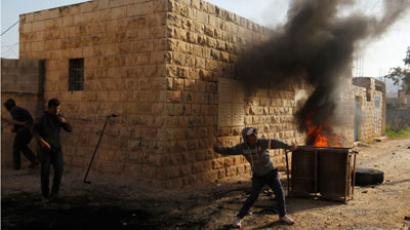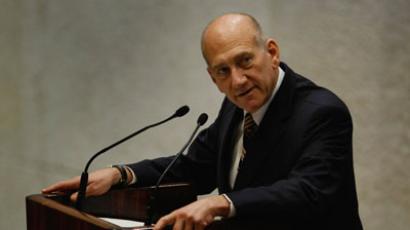'Unbreakable Alliance': Obama Israel trip mere PR stunt?
It's the first time that Barack Obama has set foot on Israeli soil as US president, despite being his second term. The need may be great, but critics say it's nothing but a PR move, and expectations from this visit are the lowest in history.
Israel is on high security alert as the US president and his
600-strong delegation arrive for a three-day stay. Key roads are
closed, whole Jerusalem neighborhoods fenced off, while police and
security forces are fully mobilized to provide the highest level of
safety: Obama is 'in town' on a friendly visit to re-set America's
'special relationship' with the Jewish state.
It doesn't seem his arrival is raising much excitement on the ground. US policies in and towards the region have made puzzled Israelis over whether they will be left alone to face what they perceive a grave Iranian threat, while the Arabs fail to see any action on the US side to make Israel backtrack on the West Bank settlement construction.
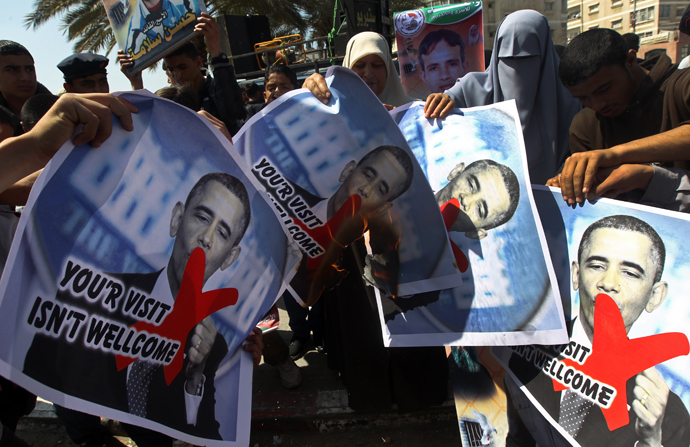
Israeli authorities have branded the visit the 'Unbreakable Alliance', hoping Obama's physical presence will send a clear message to the international community about the closeness the two allies enjoy. Among other things, Obama is scheduled to pay respects at the grave of Theodor Herzl in Jerusalem, the 'Father' of Zionism, acknowledging support to the Israeli case in the Middle East.
Obama is meeting with President Shimon Peres and PM Netanyahu on Wednesday. On Thursday, he will visit the Israel Museum to specifically see the Dead Sea Scrolls. He then will go to Rammallah and talk to Abbas and other Palestinian leaders.
On Thursday afternoon Obama will deliver a speech at the Jerusalem International Convention Center. The Herzl tomb visit falls on Friday morning, then Obama will attend the Holocaust memorial in Jerusalem and the Church of Nativity in Bethlehem.
On Friday afternoon Obama moves on to Amman, Jordan, to meet with King Abdullah II.
In reality, US-Israeli relationship is far from at its best. The fact that it's the very first Obama visit as president speaks for itself.
"There are policy differences, on Iran, on the Palestinian
issue, on the attitude toward the rise of Islamist forces in
countries like Egypt. What you see from Jerusalem nearby is not
what you see from Washington at a distance" Iramar Rabinovich,
former Israeli ambassador to the US, told RT.
According to a recent poll by the Israel Democracy Institute at Tel Aviv University, a majority of the Jewish public - 51 per cent - believes Obama's attitude toward Israel is merely neutral, while 10.5 per cent regard him as hostile.
The general mood in the Israeli society is that the US is not
keeping its promises to stay close and ensure political and
military protection. Gas masks distributed among the people and
'strike' warnings through the media made the attack on Iran a
looming reality for the Israelis, whether or not they enter 'the
war' alone or with the US.
America is strongly against a strike, hoping diplomacy and
sanctions will ensure Iran stays without a nuclear bomb.
"If we can resolve this diplomatically, that is a more lasting solution," Obama said in his interview to Israeli Channel Two last week.
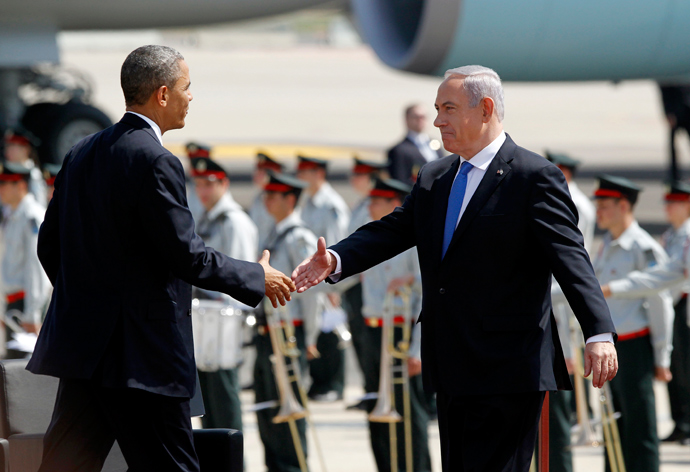
Israeli Prime Minister Benjamin Netanyahu does not believe in
diplomacy, though, when it comes to Iran. He's gearing his country
towards a preemptive strike.
"Striking Iran in spite of American explicit objection would
certainly hamper Israel's relations with the United States, might
even break them altogether," Yiftah Shapir from the Middle East
Military Balance Project told RT.
With that in mind, the Obama-Netanyahu dynamics look unsettling.
Obama, however, insists there is nothing to worry about.
“I’ve met with Bibi more than any other world leader one-on-one,” he told Channel Two. “He is very blunt with me about his views on issues, and I am very blunt with him about my views on issues. And we get stuff done. We could not coordinate militarily or on the intelligence side had it not been for our capacity to work together.”
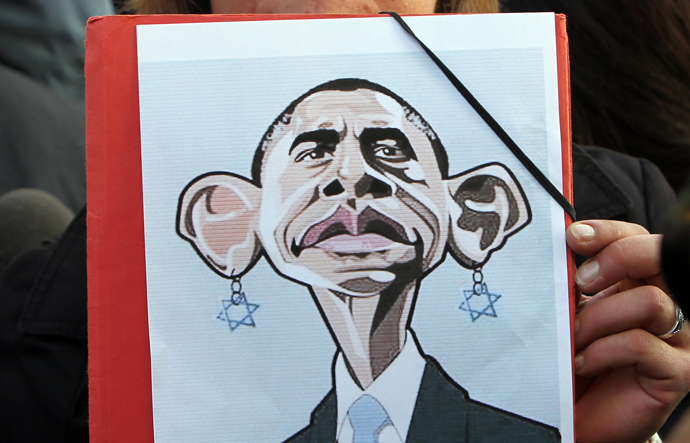
Another pointy issue between the two is the Israeli settlements on the West Bank and the consequently stalled peace talks with the Palestinians. Netanyahu has been known for his aggressive promotion of the settlements policy for years.
The new parliament, elected in January, has been supportive of
his stance. Most members of the new government, formed only a few
days ago, are known to be pro-settlement. The settlers feel
confident to follow the lead.
"We don't see ourselves leaving our communities. We live here
with the encouragement and support of the Israeli government,"
Miri Maoz-Ovadia, Israeli settler community representative told
RT.
The US has explicitly condemned the settlement policy, but has done
nearly nothing that would change the reality on the ground, raising
Palestinian anger.
"In his statements, President Obama has repeatedly voiced his
opposition to illegal land expropriation, and we think he’s right,
now all that remains is to translate words into action," the
Palestinian leader Mahmoud Abbas told RT.
Obama is meeting him on Thursday.
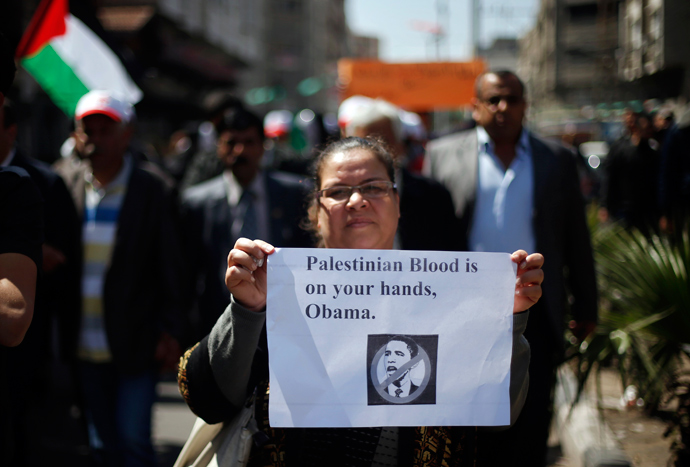
The scheduled Hertzl tomb tribute didn't go unnoticed either, with speculations Obama should also go to the resting place of the late Palestinian leader and Nobel Peace Prize-winner Yasser Arafat.
On the eve of the arrival hundreds of Palestinians rallied in
Ramallah with placards saying ‘No Hope for Obama’. Angered by the
American leniency towards the Israeli settlements, they expect
little of his visit.
"Obama came just to beautify the ugly face that Bush left. The American governments work the same whether the president is Obama or Bush. The only difference is that one president smiles, while the other doesn't," Afu Agbaria, Arab Knesset member, told RT.
The third most pressing issue on the table for Obama's time in the Middle East is the deteriorating situation in Syria, with little progress expected on that side either.
